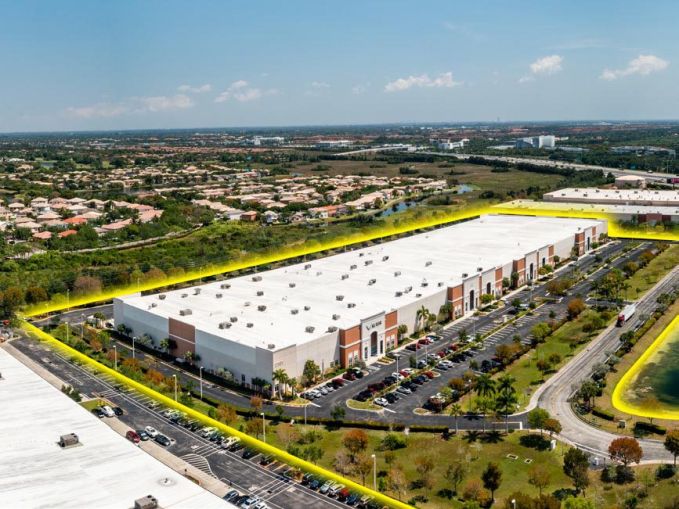Cabot Properties’ Deal With Hatch Data Underscores ESG in Industrial
Private equity owner partners with proptech firm to bring energy reporting to its institutional-size North American portfolio
By Philip Russo February 22, 2022 12:28 pm
reprints
When private equity real estate owners start caring about sustainability in their industrial properties it is clear that a big change is indeed underway.
The latest example of this greater emphasis on sustainability in the industrial sector is the announcement Tuesday that Cabot Properties, a private equity logistics owner-operator, is partnering with Hatch Data, a decarbonization platform for real estate, to provide energy performance data for its institutional triple-net-lease tenants across more than 70 properties in North America.
“We’re trying to focus on sustainability at the property level,” said Franz Colloredo-Mansfeld, CEO of Boston-based Cabot Properties. “Investors and now tenants are focused on sustainability and we are trying to reduce our carbon footprint across the portfolio. Energy is the primary factor for us and we are working with our tenants to reduce their energy usage, or to at least become more efficient. The tenants control the energy consumption released from the premises and use the buildings to suit their needs. They are responsible for the expenses related to energy consumption.
“It’s hard to learn to manage something unless you measure it, so this is a way that we can help improve the measurement of [tenants’] energy consumption, do it on a real-time basis, and then implement plans with them. This is the first important step in doing that.”
The Cabot-Hatch partnership is designed to help tenants access their real-time electricity and natural gas usage; provide customized monthly use reports to track the impact of their efficiency measures; and to make data-driven capital project recommendations for occupiers, according to a statement from Cabot.
Monitoring and reporting energy usage in all types of buildings is what Hatch Data specializes in, said Ben Mendelson, co-founder and chief commercial officer of the company, which is co-headquartered in Boston and San Francisco. “All the data that a commercial real estate fund would use for reporting, we can pull together and push that data directly to ENERGY STAR, GRESB or to consultants that they work with to help them with reporting.” That includes a fund’s investors.
For private equity and other owners of industrial properties, recent municipal and state environmental laws around the country, such as Local Law 97 in New York, are among the drivers of getting behind the sustainability movement, Mendelson said.
“We help organizations wrap their arms around all the data that would be required for that reporting and disclosure and then help facilitate, either directly or by working with consulting partners that make the actual submittals,” Mendelson said. “Then we go a step further and help companies at the asset level improve performance through a variety of different products involving real-time monitoring at the utility level or even at the equipment level in those assets to improve their operational performance.”
Among the factors pushing industrial property owners to up their sustainability game are the increased value of the sector as an asset, supply chain pressures and more institutional ownership focused on environmental, social and governance, or ESG, said Cabot’s Colloredo-Mansfeld.
“We’re at an interesting inflection point in a number of ways,” he said. “The industrial sector has been a major property type for decades, but it’s only in the last 10 or 15 years that it has become widely accepted as an institutional asset class. Since the financial crisis, we’ve seen very strong demand by e-commerce, and as that’s occurred, the sector has become more institutional.”
Colloredo-Mansfeld noted that 15 years ago, the top 20 owners had less than 20 percent of all space.
“It was a very fragmented business,” he said. “If you looked at institutional real estate portfolios, the industrial sector was about 15 percent. Now it’s grown to 25 percent. It’s established as one of the major property sectors. Throughout all this, industrials performed very well and we’ve seen very strong capital flow. So you have a different dynamic with a much larger institutional investor ownership of the sector.”
Responding to supply chain pressures, more companies are managing their industrial properties or outsourcing them to third-party logistics operators, who are “more institutional, more focused on ESG,” he added.
“There is an economic principle here. If we can make these buildings more efficient, the tenants can operate them more efficiently. If we can make these buildings greener, I think they will achieve higher rents over time and we can achieve higher values for these properties in the long run. So it’s the right thing to do, but there is also an increasing economic driver for all this.”
As the industrial sector’s value has increased, so has the competition, such as in Blackstone’s $2.8 billion portfolio purchase in December 2021 from Cabot.
“We’ve been doing this a long time and we’ve had some very good competitors,” said Colloredo-Mansfeld. “A number of our public peers — Prologis, Duke [Realty] — are focused on this as well and they’ve been very disciplined about upgrading their building systems and working with their tenants, responding to all the same dynamics.
“And then you have new entrants. Blackstone has made a big push, KKR is making a big push show. The business is evolving. It’s much more interesting.”
Philip Russo can be reached at prusso@commercialobserver.com.


